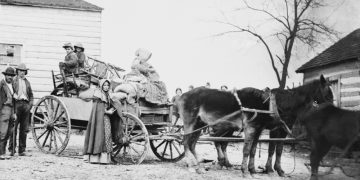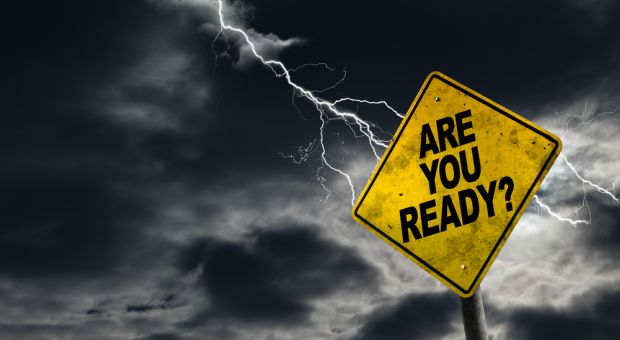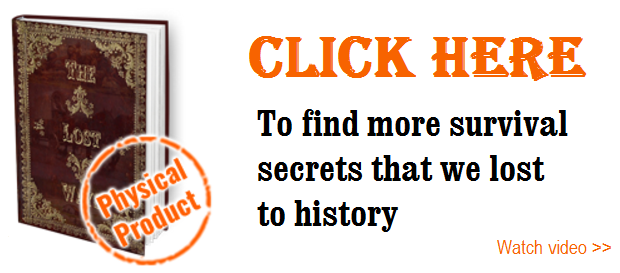We in the prepping community tend to think in terms of the big disasters, TEOTWAWKI events.
That’s what most of us write about and that’s what most of us base our preparedness planning around. There’s nothing wrong with that, but the reality is that we’re much more likely to be faced with a natural disaster that strikes the region we live in or a personal catastrophe.
What do I mean by a personal catastrophe? It’s actually a rather wide area, including the loss of a job, bankruptcy, divorce, loss of a loved one, serious sickness or incapacitating injury. Chances are very high that we will all face more than one of those, sometime in our life. If our goal is to be prepared to survive any disaster, than we have to include those in the mix, especially when we consider the likeliness of them happening.
Each of those are different, but as with any disaster, there are things in common. While you may not have to worry about the city water service going out, there’s a chance that you might lose power, due to difficulties in paying the bills. Regardless, you will have struggles to deal with, and not just emotional ones.
Whatever you do, don’t minimize those personal catastrophes. Just because they only affect you and your family, that doesn’t make them any less of a disaster than something that wipes out your city. The only real difference in impact, between one of these and a hurricane is the number of lives affected, not the severity of the impact on those whose lives are destroyed by it.
Using Your Preps to Your Advantage
While your existing preps may not have been created with the idea of surviving a personal disaster, they may still help you get though one. Many of the disasters I mentioned above carry with them severe financial problems. So while you’re busy trying to survive through the emotional and physical parts of those disasters, you’re also having to face financial difficulty, making things that much worse.
Each of those disasters has expenses associated with it and many also have a reduction in income to contend with. For most people, this either means going into debt, asking for help from friends and family or rushing to find ways of cutting their expenses. But there are other ways of making it financially, especially as a prepper.
Here is where your prepping can help you. Many of the things you do in preparation for a disaster can help reduce your monthly cost of living, making it a little easier to make it through the disaster.
Granted, using your prepping stockpile to make it through a personal disaster is going to mean that you aren’t going to have it available for another disaster, but that’s what it is for. You can always rebuild your stockpile once things clear up and are okay again. Yes, that will take time and yes it will be difficult. It was the first time around; but you didn’t create that stockpile just to sit there, you created it to use, when and if you need to.
Heating Your Home
One of the biggest monthly expenses for many families is home energy; specifically, heating their home. Home heating bills can be rough to handle in the best of times; and when income is tight, they can be outright impossible to meet. But there’s a lot you’ve probably already done, as part of your preps, which can help you there.
You should already have an alternate means of heating your home, as part of your disaster preparedness. For most of us, this is wood, although there are those who use other means. As part of this, you should have several months worth of your chose fuel stored up, ready to use. This could be an ideal time to use that, saving yourself from the problem of heating your home.
Of course, any emergency home heating method is probably going to only heat parts of your home, most likely the main living areas, and not the bedrooms. So I hope you have lots of blankets and a bedwarmer available. Once the bed is warmed up, the blankets should keep you warm all night.
This is how our ancestors did things, years ago. Unless the family was wealthy, only the living area was heated. But the home would be designed in such a way so that all the other rooms opened onto this area, or were over it in a loft, so that at least some heat would get into the other rooms. Even so, it was not uncommon to have ice on the inside of the walls, even while the bed might be toasty warm.
Food
The second big area that your prepping can save you money during a personal disaster is in providing your family with food. While figures vary, the average family spends somewhere between $600 and $900 per month on food, making it a major budget item for most people. Not only can that much of a savings make a huge difference in your family’s monthly budget, but if money is really that tight, it guarantees that your family can eat.
Granted, most of us don’t stockpile the same sorts of food that we eat regularly. So you might have to do a bit of experimenting with recipes. I recommend this anyway, as you don’t want to be in any survival situation, with a stockpile of food and no way to get your family to eat it.
The real trick here is spices and sauces. You can make just about anything taste good, if you season it the right way or put the right sort of sauce on it. Spaghetti sauce is a great example of this, because it’s flavor covers up just about anything. You can put spaghetti sauce on french-fried road kill, and your family will think it tastes just like chicken parmesan.
Other Prepping Supplies
Just like food, there are probably a lot of other prepping supplies that you have stockpiled, which will help you through this sort of time period. While toilet paper and other personal hygiene items may not seem like a major expense in your monthly budget, they do add up.
More than that, it helps keep your family’s life a bit more normal. It’s not uncommon for people to try and cut corners everywhere they can, when they are going through financially tough times. But worrying about how much shampoo and toothpaste everyone is using will just add to everyone’s emotional stress, making it harder for them to cope with the more important things that are going on.
Water
Water is not usually a major expense for most families, unless you live in an area where you buy a lot of bottled water, rather than using tap water for drinking water. Bottled water can add up, especially if you’re buying individual bottles in convenience stores.
But if you’re a prepper, you probably already have some sort of water purification system in place. So there’s no reason why you need to buy bottled water at all. Rather, you can bottle your own purified water, putting it into sports bottles so that your family has clean water to drink.
Taking this idea a step further, you can actually save quite a bit of money by eliminating the cost of dealing with daily coffee and snacks. Today’s coffee prices are ridiculous, especially if you’re used to going to a coffee shop for your coffee and not to the local convenience store.
The same can be said for snacks. If your children are buying snacks every day, in individual serving size packages, you’re spending a lot of money in the average month. Making your own home-baked snacks, out of the things you’ve got stored in your food stockpile, will provide them with tastier, more nutritious and more interesting snacks. Their friends will probably be jealous of them.
Electrical Power
Finally, there’s the area of electrical power. We’ve already dealt with the biggest area of electrical power consumption, by talking about home heating. If you switch over to heating your home with wood, you’re going to save a fortune on your electric bill. But there are other areas you can save on electricity, especially if you have some means of producing your own electrical power.
Many of us have at least some solar panels. But most of the time, those solar panels just sit in storage, awaiting the time when we need them. Well, if you’re passing through a personal tragedy, it might just be that time.
You probably don’t have enough solar panels and a large enough battery backup system to run your whole household, but you should have enough to run some things. Whatever you have, use it. Every bit of electricity you produce yourself, is one less bit of electricity that you have to pay the electric company for.
Don’t Forget to Restock
If you end up using your stockpile or even part of your stockpile to survive a personal tragedy, then you can say that you have succeeded as a prepper. You prepared for a disaster, without knowing what sort of a disaster might befall you, and your preparation helped you to survive.
But this doesn’t mean that you’re free and clear for the rest of your life. You could have another disaster barreling down on you at any time. You just don’t know. So you want t make sure that you start refilling your stockpile as soon as you are back on your feet. Obviously, there are other things which take priority over that, to help you get back on your feet, but as soon as you reasonably can, you want to make that a part of your recovery.
Preparing Yourself Financially
You rarely hear about financial preparedness in the prepping community, but it is just as important as anything else we do to get ready for disasters. Part of the reason why you don’t hear much about it, is that many people have the idea that in the aftermath of a TEOTWAWKI event, money won’t mean anything and we won’t have to pay our bills, because of it.
But the truth is that we don’t know what to expect in such a time. Even worse, we’re all much more likely to be hit by either a personal tragedy or a regional disaster, than we are to face a TEOTWAWKI event. With that being the case, chances are that finances are going to play an important part in our recovery from the disaster.
Any financial planner will tell you that you should have enough money in savings to cover three months of household bills, but few of us have that today. Rather, most of us have very little money in savings and instead live from paycheck to paycheck. Worse than that, many people live on 110% of what they earn, charging the rest off on credit cards and loans.
The reality is that the great American pastime of keeping up with the Jones’ is expensive. Most of us live beyond our means, in an attempt to do that. What we should do is find ways of downsizing, reducing our costs so that we are living on less than what we make.
The other important thing here is getting out of debt. Most of us have some sort of home mortgage (unless we are renting), two car payments, credit card debt and perhaps debt on our children’s braces or some other necessary expense. That’s just too much.
Debt can’t be taken care of overnight. But you can gradually work your way towards getting out of debt. There are many experts in this field, who have written about excellent strategies to help you get out of debt and live life debt free.
Getting rid of debt can be the single greatest thing you can do, to help your family survive a personal tragedy. Even better than that, it can actually help you avoid some of those personal tragedies. People who file for bankruptcy usually do so because of debt. So if you eliminate that debt or even greatly reduce it, you eliminate or reduce the risk of bankruptcy at the same time.
A Final Thought
We must realize that personal catastrophes are emotional events, more than anything else. Therefore, they must be dealt with that way. Your biggest struggles aren’t going to be dealing with the financial problems that the catastrophe causes you, it’s going to be dealing with the emotional upheaval that the event causes for your whole family.
You need a plan for dealing with the emotional struggles associated with any disaster anyway, not just a personal catastrophe. Whether that is through your faith in God or something else, it is necessary. Many people who drink and use drugs do so because they have no other foundation to help them with the emotional problems of life. You can’t afford to be counted among those people.
























































































What does TEOTWAWKI stand for? I’m sure it is very obvious once it is explained !!!!!
Hello, Dorothy 🙂 TEOTWAWKI is an acronym for “the end of the world as we know it”.
Hey Bill, great writeup – I think that resilience is something of a lost art in many ways. We’ve become so used to having things convenient and easy that when they don’t go our way, it’s easy to get frustrated. But being resilient and being able to have a high threshold for stress and pressure means you can deal with things better and in a personal tragedy (or big nationwide tragedy) you can probably stick with it better because you’re able to see the end goal and deal with the obstacles in between. A good book on it is Grit by Angela Duckworth.
Thank you, Bill, for a thought-provoking article. The disaster or personal catatrophe that we might be facing isn’t necessarily the one that we expected, nor the only one that might come along next. I’ve been preparing for an earthquake (expected in the NW), financial upheaval, possible social breakdown, or maybe even nuclear war, but I never expected my partner in life to die. Such a thing is not so unusual or rare. So many people face this all the time, but suddenly I am shocked to be without him. The personal and emotional upheaval is difficult to put into words. None of my preparations will help in this disaster. It is all internal and that’s the one place I thought was fine. It is a hard experience for anyone to lose someone that they love dearly and I am dismayed by the state of shock I’m in. I find myself wondering how I could have possibly prepared emotionally for this sort of loss. Surely we will experience this if any of those other things happen. Steeling yourself and strengthening your emotional side – somehow – will be important especially since loosing that loved one can make you want to give up even without any other dangers facing you. Maybe it’s easier with a more wide-spread problem/conflict because you have something to blame, but I doubt it. Thank you again for your article.
I am in the same situation and was thinking the same thing before I read your response. I am sorry for the loss of the life of these good men. They miss out and their loved ones miss them. It is hard to understand and hard to find a new happy life. It will & has happened to many but it is still painful and life changing. May we all find peace and be able to appreciate the beauty surrounding us in this world. While still remembering and appreciating our lost loved ones.
This makes you think…I think the way you react to a certain situation makes you or breaks you.